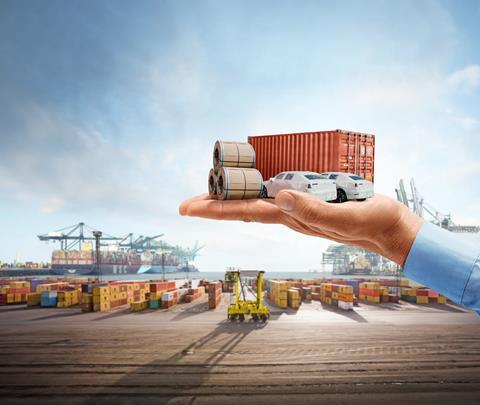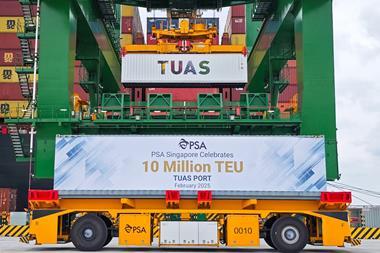(Updated 23rd May 2025) The Inbound Release Platform (IRP), which went live at the beginning of April, is now in effect at all Belgium seaports. It acts as a central data sharing site for various stakeholders including customs agents and LSPs, streamlining customs compliance.
NxtPort, a subsidiary of Port of Antwerp-Bruges, has developed a new digital platform – IRP – in a move that will allow companies to better adhere to changing EU customs regulations.
The platform acts as a portal wherein the different players involved in inbound cargo flows can centrally store and access data related to shipments. IRP’s developers say that it comes as a direct response to the EU mandate going into effect this year that sees inbound logistics moving over to a new Presentation Notification/Temporary Storage (PN/TS) system – which itself is highly digitalised.

Since its release at the start of April, the platform has already seen success. Geert Maes, transition manager at NxtPort, commented that “almost 100% of the shipping agents and terminal operators in Belgium are involved,” and the company is seeing an increase in adoption from external customs agents and LSPs.
While Port of Antwerp-Bruges has not seen the increase in traffic that was initially expected after recent trade and tariff announcements earlier in the year, NxtPort hopes that the efficacy that the platform brings will remove one significant bottleneck in the customs process. Maes adds that an approach using IRP gives Belgian Customs “the necessary space” to better engage with inbound cargo and “prevent disruptions in the flow of goods.”
He expanded on these comments, telling Automotive Logistics that the platform gives companies access to people with “good customs knowledge” that they can leverage in the face of customs declarations for automotive cargo, and cargo in general, becoming “more difficult.”
Kirsti Gjertsen, segment manager automotive at Port of Antwerp-Bruges, also reinforced the platform’s importance to OEMs and their logistics partners, explaining that the IRP is not aiming to replace any existing platform or partnership used in the logistics process. Instead, the platform acts as bridge between logistics service providers and the customs authority being “suitable for all types of players within the value chain”. As such, it allows LSPs to have greater efficiency when automotive freight reaches the ports.
She also pointed to the importance of the Port of Antwerp-Bruges to the global flow of vehicles as another reason for the IRP’s usefulness for the automotive sector. Over 3 million vehicles pass through the port each across various cargo flows, including ro-ro, so the platform can “smoothen” their journey through the port and increase the speed at which these cargo flows pass through the port can be crucial in ensuring rapid and agile logistics.
Increased supply chain transparency through digitalisation
Both IRP’s developers and users point to its role as a centralised and accessible datahub as being integral its success. Wendy Vandenbussche, customer service manager at CSP Zeebrugge Terminal, points directly to “transparent data sharing” as being key to improving communication between players and boosting the efficacy of port operations.
This was a goal of the IRP from its inception, with both Maes and Gjertsen pointing to conversations with port authorities and other players in the space on the difficulties of synthesising data as being the basis for the platform’s creation.
The importance of data transparency is an idea that is being widely adopted across the wider automotive logistics landscape. However, experts warn that this success is dictated by the quality and reliability of the data, as explored by Mercedes-Benz’s John Torres in his Red Sofa interview at ALSC Digital Strategies last year.
Interested in learning more about how apps, platforms and portals can impact cargo flows, including how data can be best utilised across each stage of the network?







































No comments yet